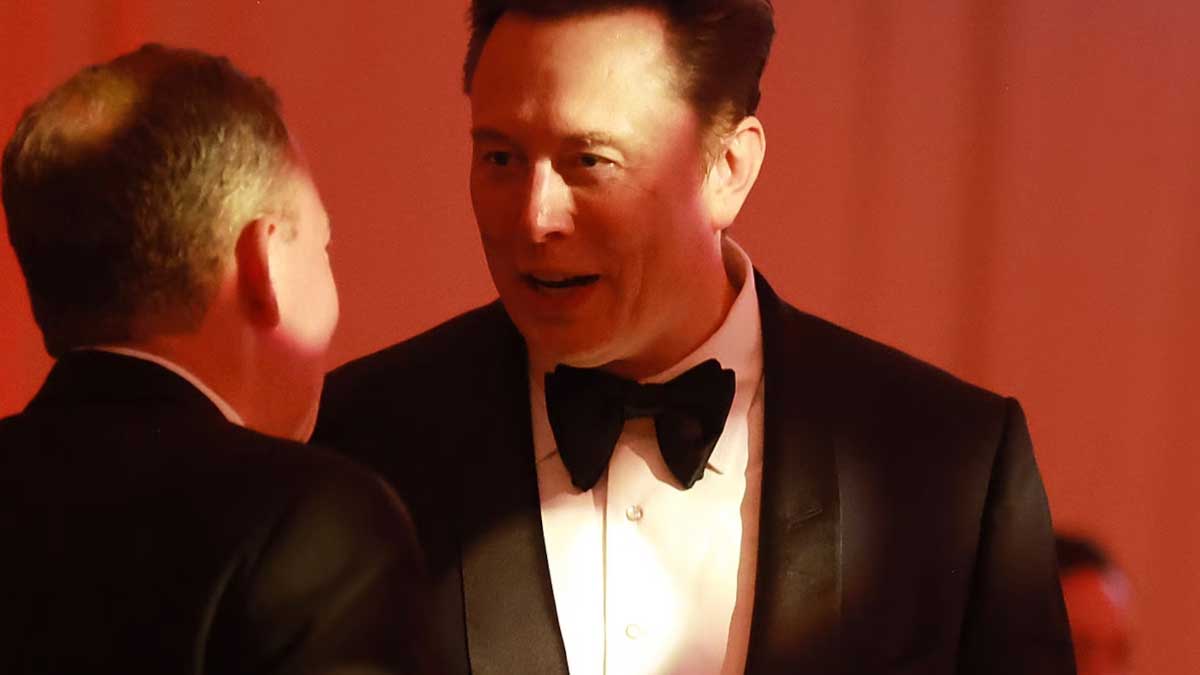- Home
- Billionaires
- Investing Newsletters
- 193CC 1000
- Article Layout 2
- Article Layout 3
- Article Layout 4
- Article Layout 5
- Article Layout 6
- Article Layout 7
- Article Layout 8
- Article Layout 9
- Article Layout 10
- Article Layout 11
- Article Layout 12
- Article Layout 13
- Article Layout 14
- Article Sidebar
- Post Format
- pages
- Archive Layouts
- Post Gallery
- Post Video Background
- Post Review
- Sponsored Post
- Leadership
- Business
- Money
- Small Business
- Innovation
- Shop
Recent Posts
Musk and Ramaswamy Push $2 Trillion Federal Cuts via DOGE

Billionaires Elon Musk and Vivek Ramaswamy, co-leads of the Trump administration’s proposed Department of Government Efficiency (DOGE), are spearheading an ambitious effort to slash federal spending by $2 trillion. Announced at a Trump rally by Musk, the initiative targets several prominent federal agencies, including the Pentagon and the Department of Education, though specifics remain scarce. Critics have raised concerns about the feasibility of such cuts and the potential implications for essential services.
The Department of Defense is among DOGE’s key targets. Vivek Ramaswamy has criticized the Pentagon’s nearly trillion-dollar budget, citing inefficiencies and a lack of transparency. However, no detailed plans have been outlined for addressing these issues. This focus has drawn scrutiny given that Musk’s SpaceX holds $3.6 billion in contracts with the Pentagon, raising questions about potential conflicts of interest.
The Department of Education is another agency in DOGE’s sights. Former President Donald Trump has long advocated for its dismantling, and the commission plans to pursue significant reductions. Ramaswamy has indicated that mass layoffs and agency eliminations are on the table, signaling a dramatic shift in federal education policy.
In a Wall Street Journal op-ed, Musk and Ramaswamy criticized what they called unauthorized federal expenditures, citing the $535 million annual budget of the Corporation for Public Broadcasting, which oversees PBS and NPR, as an example. Planned Parenthood is also in their crosshairs, with proposed cuts amounting to $300 million, though the organization receives only about $50 million annually in federal funding. These proposed reductions align with longstanding conservative critiques of public broadcasting and progressive organizations.
DOGE also aims to eliminate $1.5 billion in grants to international organizations, though specific targets have not been identified. Musk has amplified concerns over what he perceives as wasteful spending, referencing exaggerated claims about taxpayer funds being used on unusual projects like “transgender monkeys” and other controversial programs. These statements have drawn both criticism and support, underscoring the polarizing nature of the initiative.
The Internal Revenue Service may also face significant cuts, with Musk advocating for simplifying the tax code and introducing a free tax filing system. The Federal Trade Commission, Department of Justice, and Securities and Exchange Commission are additional targets, as Musk has previously criticized regulatory overreach. However, no clear plans have been shared regarding specific reductions for these agencies.
DOGE’s focus extends to government programs lacking recent Congressional authorization. This could include initiatives related to veterans’ healthcare, drug development, and NASA, which currently has $11.8 billion in contracts with SpaceX. Musk has also reposted claims about federal funds being spent on dubious projects, further emphasizing the need for cuts. However, critics argue that such programs may include vital services that require careful consideration before being defunded.
Skepticism surrounds DOGE’s ability to achieve these cuts without Congressional approval. Musk and Ramaswamy argue that the Impoundment Control Act, which prevents the president from halting authorized spending, is unconstitutional. However, major reforms, such as simplifying the tax code or eliminating agencies, would require legislative action, creating uncertainty about the initiative’s practical execution.
Workforce reductions are a significant aspect of DOGE’s plan. Musk and Ramaswamy aim to identify the minimum staffing needed for agencies to function effectively, with plans to eliminate administrative overhead through layoffs and relocations. They also intend to implement a strict return-to-office policy requiring federal employees to work onsite five days a week. This move is expected to prompt voluntary resignations, and DOGE has proposed offering severance packages and early retirement incentives to facilitate these transitions.
Despite these workforce reduction plans, analysts point out that federal employee salaries and benefits account for only a small fraction of the federal budget. Even eliminating 25% of non-military positions would reduce overall spending by just 1%. This underscores the challenge of achieving significant budget cuts through personnel reductions alone.
The subcommittee supporting DOGE, chaired by Rep. Marjorie Taylor Greene, is expected to begin its work next year. The commission has set a July 4, 2026, deadline for achieving its $2 trillion goal, though Musk has expressed optimism about completing the cuts ahead of schedule. Critics argue that achieving such reductions without bipartisan support and clear legislative pathways will be a monumental challenge.
As the world’s richest person, with a net worth of $320 billion, Musk’s involvement in DOGE has drawn intense scrutiny. His roles at Tesla and SpaceX, both of which receive substantial federal contracts, have raised questions about conflicts of interest. Ramaswamy, whose wealth recently surpassed $1 billion, also faces concerns about the influence of his private sector interests on the commission’s decisions. The ambitious scope of DOGE’s proposed reforms, coupled with its reliance on executive authority, has sparked widespread debate about its viability and potential consequences.
Recent Posts
Categories
- 193 Countries Consortium Partner1
- 193cc Digital Assets2
- 5G1
- Aerospace & Defense48
- AI37
- Arts3
- Banking & Insurance11
- Big Data3
- Billionaires1,467
- Boats & Planes1
- Business332
- Careers13
- Cars & Bikes79
- CEO Network1
- CFO Network17
- CHRO Network1
- CIO Network1
- Cloud10
- CMO Network18
- Commercial Real Estate7
- Consultant1
- Consumer Tech194
- CxO1
- Cybersecurity73
- Dining1
- Diversity, Equity & Inclusion4
- Education7
- Energy8
- Enterprise Tech29
- Events11
- Fintech1
- Food & Drink2
- Franchises1
- Freelance1
- Future Of Work2
- Games149
- GIG1
- Healthcare79
- Hollywood & Entertainment203
- Houses1
- India’s 1000 Richest1
- Innovation46
- Investing2
- Investing Newsletters4
- Leadership65
- Lifestyle11
- Manufacturing1
- Markets20
- Media327
- Mobile phone1
- Money13
- Personal Finance2
- Policy569
- Real Estate1
- Research6
- Retail1
- Retirement1
- Small Business1
- SportsMoney42
- Style & Beauty1
- Success Income1
- Taxes2
- Travel10
- Uncategorized14
- Vices1
- Watches & Jewelry2
- world's billionaires1,436
- Worlds Richest Self-Made Women2
Related Articles
South Korea Plane Crash: A Tragic Loss and Global Mourning
The tragic plane crash at South Korea’s Muan International Airport on Sunday...
By 193cc Agency CouncilDecember 30, 2024H-1B Visa Debate Splits Trump Allies and Silicon Valley
The debate over H-1B visas has once again become a contentious issue,...
By 193cc Agency CouncilDecember 28, 2024Trump Moves $4B Stake in Truth Social Parent, Stock Drops 6%
Donald Trump recently transferred his 57% stake in Trump Media & Technology...
By 193cc Agency CouncilDecember 20, 2024House Rejects Trump-Backed Funding Bill, Shutdown Looms
The U.S. House of Representatives rejected a new government funding bill on...
By 193cc Agency CouncilDecember 20, 2024















Leave a comment